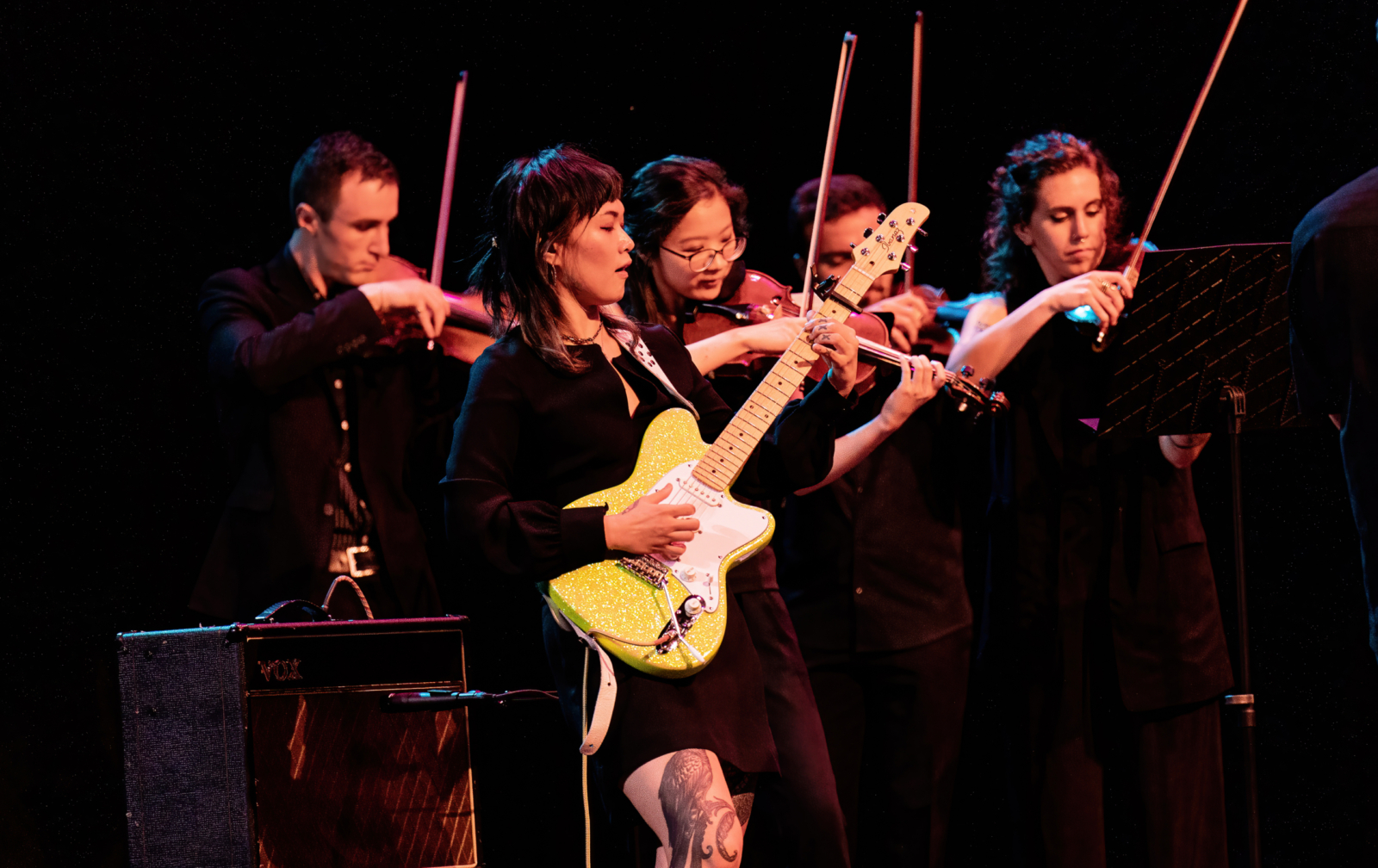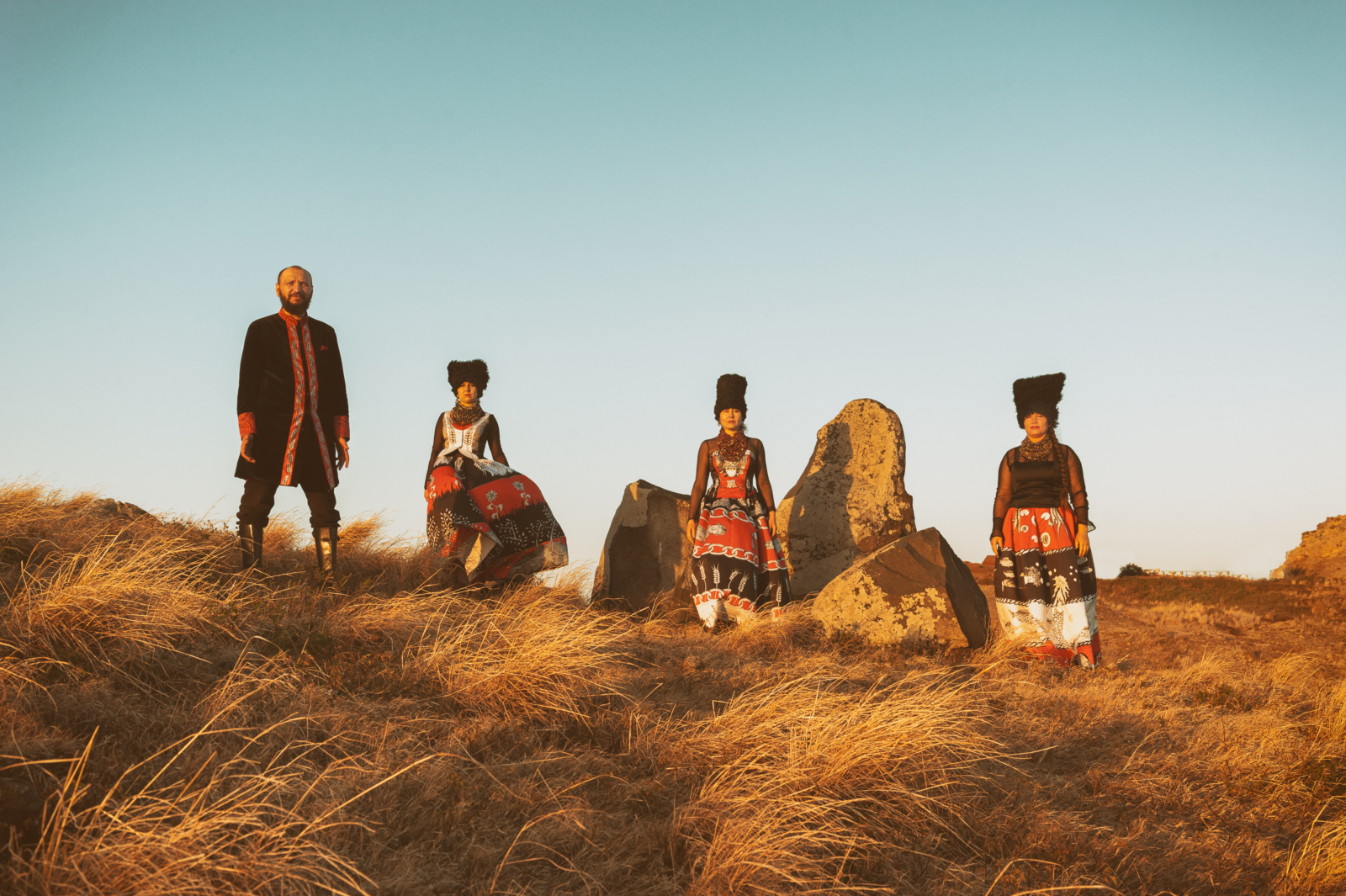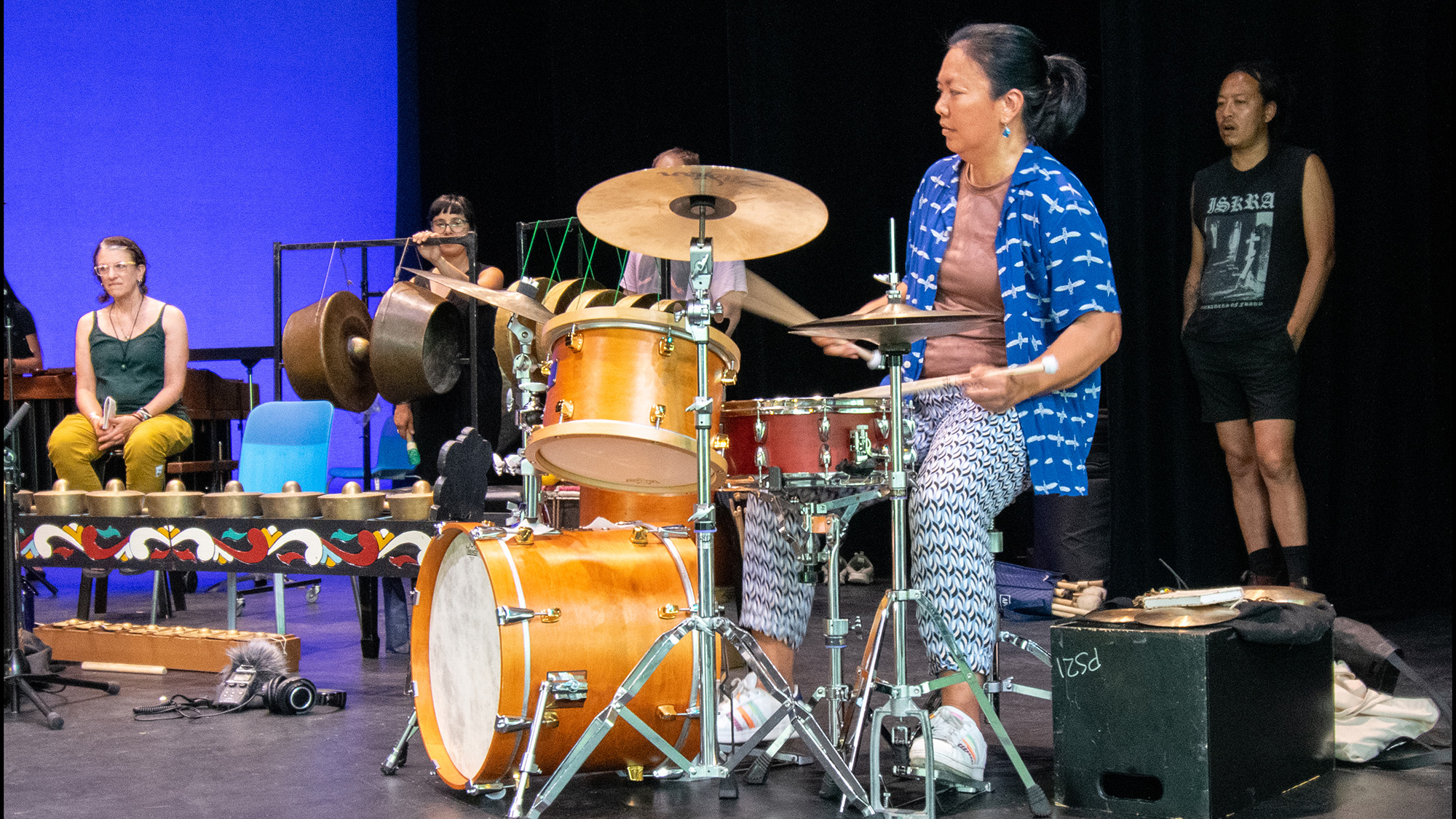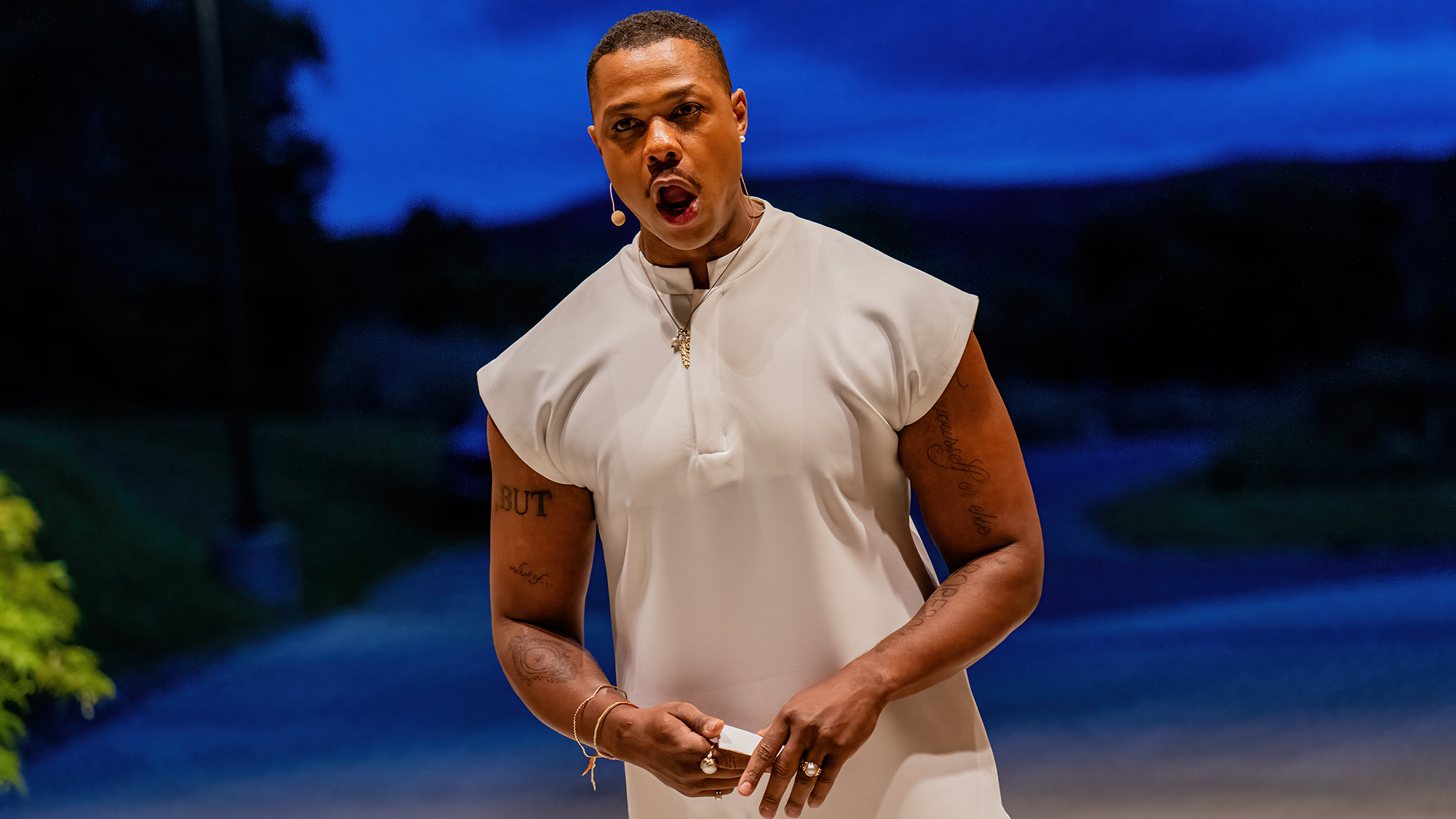
EARTH
Dakhabrakha

Grounded in the fundamental elements of sound and soul, Ukrainian “ethno-chaos” band DakhaBrakha (“give/take” in Old Ukrainian—a play on the group’s philosophy and resilience) create distinctive, unexpected new music.
Rooted in Ukrainian folk music, culture, and ethos, the band added rhythms of the surrounding world to create a unique and original style. Accompanied by Indian, Arabic, and African traditional instrumentation, the quartet evolved a powerful and uncompromising vocal and musical range, intimate and riotous, that plumbs the depths of traditional and contemporary modes and rhythms to inspire cultural and artistic liberation. At PS21, DakhaBrakha will present their original live accompaniment to a screening of the classic Ukrainian masterpiece Earth (1930), by Oleksandr Dovzhenko.
“The group mixes everything from punk-pop to traditional Ukrainian songs in cool yet beguiling textures, often with the close harmonies usually associated with Balkan music. But it’s really the live shows that take DakhaBrakha beyond mere curiosity to utter brilliance.” — NPR
Considered to be one of the most important films of the Soviet era, Dovzhenko is a master of composition, and the film—with its intense close-ups and the impressive expanses of the landscape—is a passionate tribute to the countryside, to nature, and to the people that work on it. Earth was banned 9 days after its original release, and was glorified in Ukraine only after Dovzhenko’s death in 1956. Full of lyrical pantheism and utopian exaltation, it demonstrated the ambiguity of Ukrainian geopolitical choice in the 1920s. In 1958, a film critics’ forum in Brussels named Earth one of the 12 best films in the history of world cinema.
“Making music for Oleksandr Dovzhenko’s Earth was a great honor for us and a difficult creative challenge. Frame by frame, this Ukrainian masterpiece of world cinema impressed us every time we worked on it. No matter how we tried to work on the film as a self-contained artistic endeavor, avoiding ideological evaluation, we could not. Of course, we voiced the film in the human terms of the 21st Century, even while being aware that after 1930, when the film was completed, came the years of the Communist famine of 1932–1933, the years of repression, and we know about the difficult fate of the Dovzhenko socialist empire. Together, we tried to convey the authenticity, and also the naivety, of those feelings and messages brought to us from that time and that era, to us today and our Earth.” – Dakhbrakha
Earth, capped by that avowedly secular title, is a lyrical, carnal movie about birth, death, sex, and rebellion. Officially, this Soviet-era Ukrainian silent is a paean to collective farming, crafted around a family drama, but its director, Oleksandr Dovzhenko, was a born renegade, for whom plots were far less important than poetry. Earth is the final part of Dovzhenko’s silent trilogy (following the nationalist fantasy Zvenigora (1928) and the avant-garde anti-war film Arsenal (1929), and is brimming with exuberant youth, but haunted by the shadow of death.
Sketched as tribute to the boons of collectivisation, but released as those schemes were falling out of favour, Earth was condemned on its home turf on political grounds. It was also snipped by censors who objected to the nudity, and the infamous scene in which farmers urinate into their tractor’s radiator. But while there was dismay and censure in the Soviet Union, critics elsewhere were overawed. It’s the latter impression that endures. Dovzhenko’s symbolism is both rich and audacious. His scope comprises vast pastoral landscapes, and intimate fleshy nakedness. Perhaps its most celebrated sequence is the magnificent opening scene: the painful counterpoint between a dying man, his infant grandchildren and the bursting fruit of his orchard. This is living cinema, as refreshing and vital as the film’s own climactic downpour. — Pamela Hutchinson, The Guardian
Marko Halanevych vocals, darbuka, tabla, didjeridoo, accordion, trombone
Iryna Kovalenko vocals, djembe, bass drums, accordion, percussion, bugay, zgaleyka, piano
Olena Tsybulska vocals, bass drums, percussion, garmoshka
Nina Garenetska vocals, cello, bass drum
Photos Olga Zakrevska and Andiy Petryna

